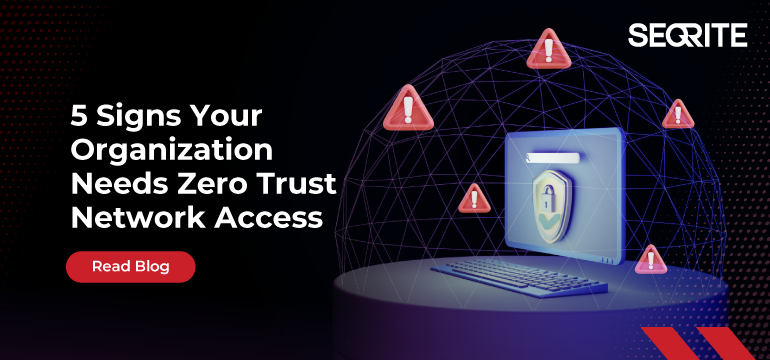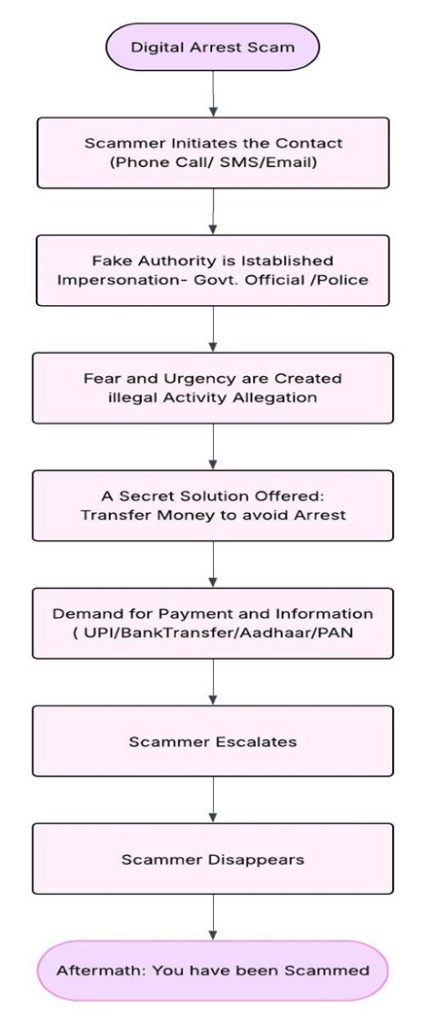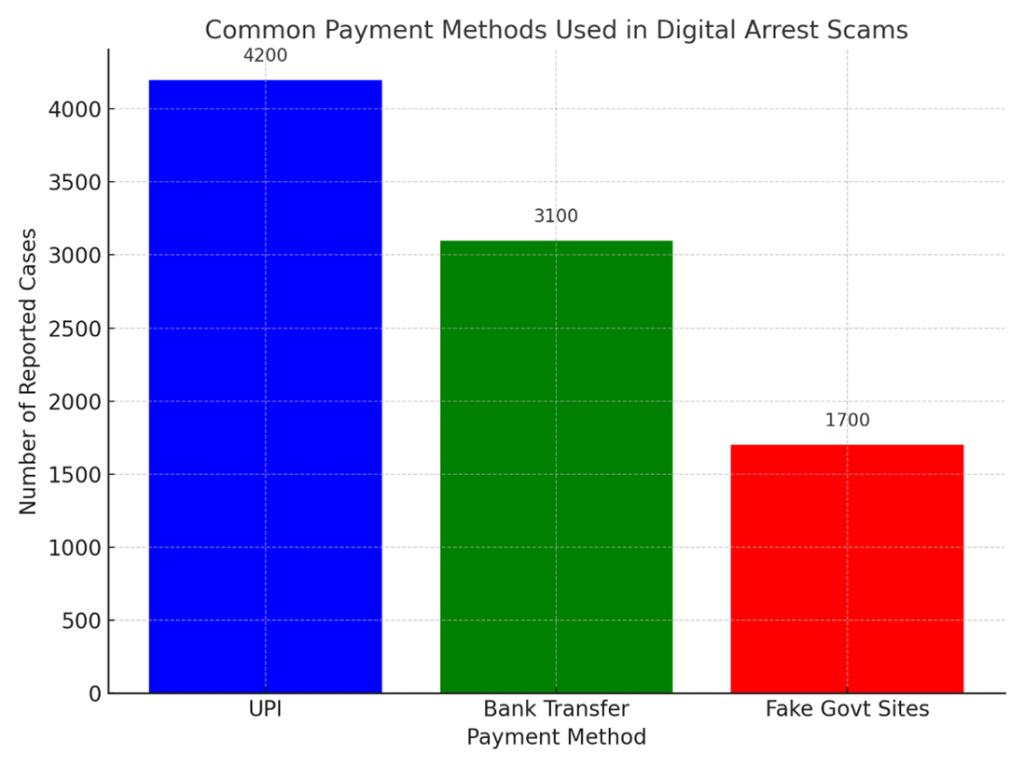Contents
- Introduction
- Initial Findings
- Infection Chain.
- Technical Analysis
- Stage 0 – Malicious ZIP File.
- Stage 1 – Malicious VELETRIX implant.
- Stage 2 – Malicious V-Shell implant.
- Hunting and Infrastructure.
- Attribution
- Conclusion
- Seqrite Protection.
- IOCs
- MITRE ATT&CK.
Authors: Subhajeet Singha and Sathwik Ram Prakki
Introduction
Seqrite Labs APT-Team has recently found a campaign, which has been targeting the Chinese Telecom Industry. The campaign is aimed at targeting China Mobile Tietong Co., Ltd. which is a well-known subsidiary of China Mobile, one of the major telecom companies in China. The entire malware ecosystem involved in this campaign is based on usage of VELETRIX malware and VShell malware a very well-known adversary simulation tool, which is also known for widely being adopted by threat actors from China to target various western entities in-the-wild.
In this blog, we will explore the technical sophistication of the campaign, we encountered during our analysis. We will examine the various stages of this campaign, starting with deep dive into the initial infection stage to implants used in this campaign, ending with a final overview covering the campaign.
Initial Findings
Recently, on 13th of May, our team found a malicious ZIP file, which surfaced both on various sources like VirusTotal, where ZIP file has been used as preliminary source of infection, containing multiple EXE and DLLs inside the ZIP folder. The same file was also found by other threat researchers the very same day.
The ZIP contains an interesting executable file known as 2025 China Mobile Tietong Co., Ltd. Internal Training Program is about to launch, please register as soon as possible.exewhich loads a bunch of interesting DLLs such as drstat.dll and much more. Then, we decided to look into the workings of these bunch of files.
Infection Chain
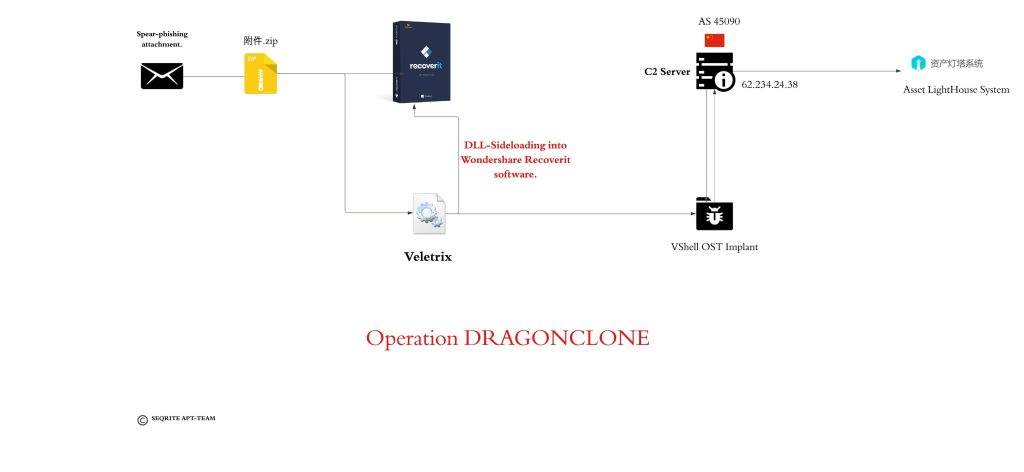
Technical Analysis
We will break down analysis into three different parts, starting with looking into the malicious ZIP attachment, followed by malicious Veletrix implant and then we will look into some brief analysis into the VShell malware.
Stage 0 – Malicious ZIP File.
Initially, we found a malicious ZIP file, known as 附件.zip, also known as attachment.zip. Upon, looking into the contents of the ZIP file.

We found a set of interesting EXE and DLL and XML files, amongst them most of them were legitimately Microsoft Signed binaries, whereas some of them had have code-signing certificate by Shenzhen Thunder Networking Technologies Ltd , while an interesting DLL file drstat.dll which is often associated with WonderShare RepairIt software.


Upon confirming from an official website of Wondershare Repairit , we can confirm that an executable known as drstat.exe which have been renamed and packaged thrice with three different names, which are:
- China Mobile Limited’s 2025 internal training program is about to begin. Please register as soon as possible.
- Uninstall.
- Registration-link.
Next, we decided to confirm further that, either Wondershare does sign the actual binary, which is officially available from their website.

Finally, we could confirm, that the threat entity used the same file, which is available for download from Wondershare’s official website. Looking into this code-signing maneuver from Wondershare, and post-analyzing this malicious we can confirm that the threat actor used DLL-Sideloading against the target to launch the implant, which we have decided to term as VELETRIX .

Before, diving into the next section, we also confirm that the other code signing certificate packed into this compressed executable by ‘Shenzhen Thunder Networking Technologies Ltd’ has frequently been associated with malicious executables in various reports and discussions as abused by Chinese-origin threat entities.
Stage 1 – Malicious VELETRIX Implant.

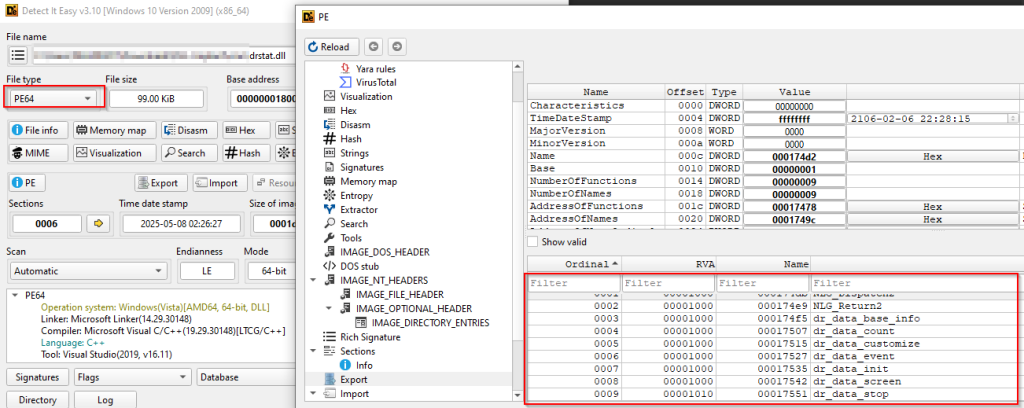
Initially, looking into the implant, we figured out a few basic information about the implant, that is it is a 64-bit binary along with which it contains a few interesting export functions. Next, we will focus on the code analysis of this malicious implant.

Upon checking into all the exports, out of all the exports, we found dr_data_stop to be the one containing interesting malicious code.

Initially, the implant starts with a little anti-analysis trick, which uses a combination of Sleep & Beep Windows API, which basically runs inside a do-while loop, which basically runs inside a do-while loop that delays execution for ~10 seconds and plays a Beep noise to evade automated sandbox analysis. The loop sleeps for 1 second and beeps 10 times, this entire mechanism is caused to delay the analysis of the analyst or confuse the automated sandbox.
This technique leverages NtDelayExecution at the system level – Beep internally call NtDelayExecution, which accepts a “DelayInterval” parameter specifying milliseconds to delay. When executed, NtDelayExecution pauses the calling thread, which causes sandbox timeouts or loss of debugger control making it a not so harmful, yet effective anti-sandbox technique. The Beep API is particularly clever because it serves dual purposes: creating execution delays through its internal NtDelayExecution calls while also generating audio artifacts that may trigger different behavior in analysis environments or alert researchers to active code execution.

Then, it moves ahead with loading kernel32.dll , further once the DLL is being loaded using LoadLibraryA, once the DLL is loaded, further GetProcAddress is used to resolve some interesting set of APIs, which are VirtualAllocExNuma, VirtualProtect & EnumCalendarInfo.

Similarly, it loads the ADVAPI32.dll and once the DLL is loaded, it resolves using the same technique, which are SystemFunction036, HeapAlloc and HeapFree.

Finally, the ntdll.dll is loaded, and an interesting Windows API is resolved which is known as RtlIpV4StringToAddressA.

Next, this malicious loader, uses a technique called IPFuscation, which basically converts the malicious shellcode into a list of IPV4 address.

Further, a while-loop along with using the RtlIpv4StringToAddressA API is used to decode the obfuscated shellcode, which is done by converting the ASCII IP string to binary, where the binary further executes as a shellcode.

Once the shellcode is extracted in form of binary, then VirtualAllocExNuma API is used to allocate a fresh memory block with only Read & Write permission into the current process.


Now, once the memory is allocated, further using a simple XOR operation, the encoded blob which was de-obfuscated from the IpFuscation technique via the windows API, is used to further decode via XOR-operation and copied to the allocated memory.


Then, it uses VirtualProtect to change the memory protection of the allocated memory to Execute-Read-Write.


Then, finally, it uses a slightly innovative technique of shellcode execution via callback function, that is by using EnumCalendarInfoA API to execute the shellcode. This technique leverages the fact that EnumCalendarInfoA expects a callback function pointer as a parameter – the malware passes its shellcode address as this callback, causing Windows to unknowingly execute the malicious code when the API tries to call what it thinks is a legitimate calendar enumeration function, whereas in our case the shellcode, which is basically an windows implant of the VShell OST framework, is being executed.
Finally, we can conclude that the Veletrix implant which performs code injection via callback mechanism. In, the next section, we will look into the Vshell implant, which is pretty well known, and look into the workings of it.
Stage 2 – Malicious Vshell Implant.
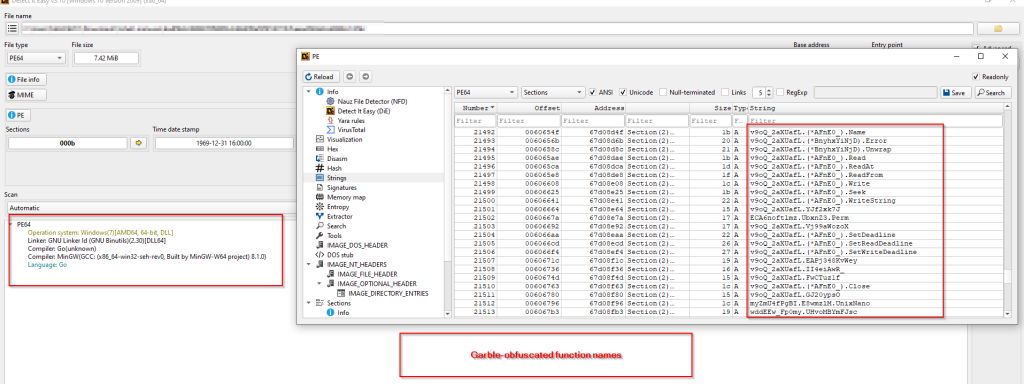
Well, VShell, is pretty well-known cross-platform OST framework developed in Golang, initially developed by a researcher, which was later taken-down mysteriously as mentioned in multiple research blogs by various researchers who have tracked various campaigns such as UNC5174 and similar have been used by threat actors originating from Chinese geosphere.
As mentioned, in the previous section VELETRIX loads this windows implant into memory. Looking inside the file, we found that the specific implant, which have been dropped goes by the name tcp_windows_amd64.dll .As, this framework is well-researched, we will only look into the key-artefacts and more of a basic overview of the implant.

Upon, looking into the implant, we have multiple functionalities of this implant such as connect, send, receive which is used to interact with the operator. All these functions use underlying code from multiple Windows APIs from WinSock library.


Further, analyzing we uncovered the command-and-control server along with an import config I.e., the salt which is qwe123qwe . In, the next section, we will look into further, hunting and infrastructural artefacts.
Hunting and Infrastructure.
Upon looking into the previous implants, we hunted and found some interesting artefacts.

Based on the analysis and extraction of the salt used in the campaign mentioned in this research, we found a total number of 44 implants, using the exact similar salt, that is qwe123qwe. Along, with that as Vshell is a cross-platform tool, we found, multiple EXEs, ELF, DLLs both signed and unsigned.

We, also found a few samples whose C2s range from multiple locations such as US, Hong Kong and much more, along with which, we found that a few samples out of 44 implants using same salt, have co-relations with the APT group Earth Lamia which has targeted Indian entities in few cases. While, upon hunting, we also found, that a lot of similar implants, have multiple overlaps with UNC5174’s campaign abusing ScreenConnect CVE-2024-1709 reported by researchers.
Now, looking into the infrastructural overlaps, the similar indicator has been attributed to the cluster of China-Nexus-State-Sponsored threat actor which have been abusing CVE-2025-31324 to target SAP NetWeaver Visual Composer.
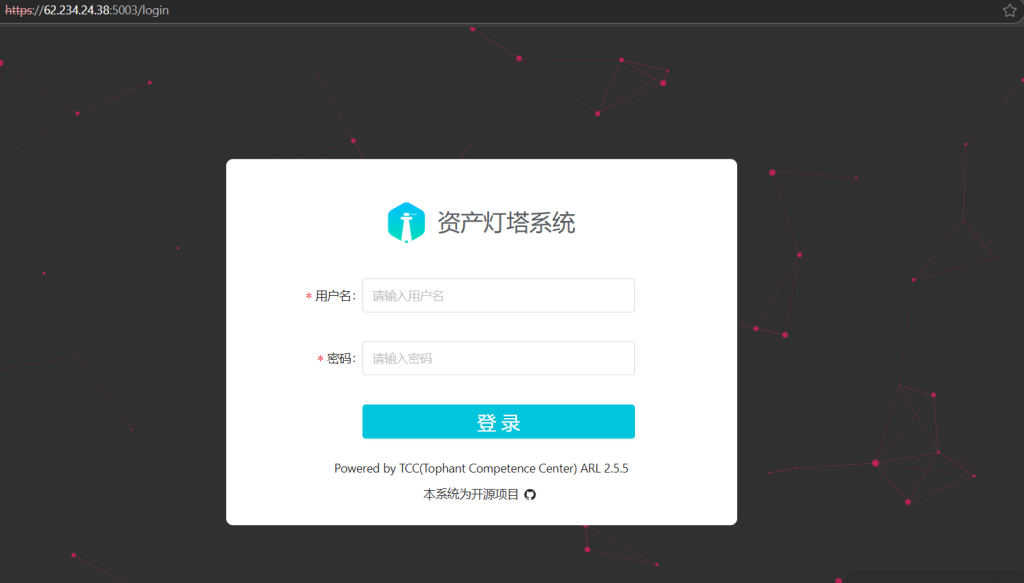
We also found that on the same infrastructure, a login-based webpage has been hosted which is related to the Asset Lighthouse System — an open-source asset discovery and reconnaissance platform developed by Tophant Competence Center (TCC). It is primarily used for mapping external attack surfaces by identifying exposed IPs, domains, ports, and web services. Therefore, we decided to pivot using these artefacts and found few interesting overlaps.
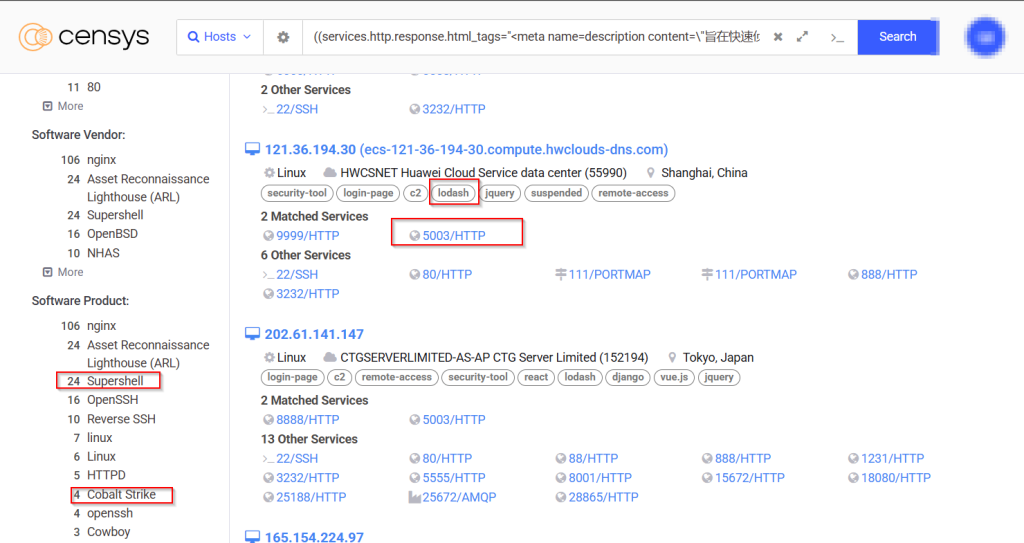
Post-pivoting, we discovered multiple malicious webservers with similar port-configurations such as running ASL over port 5003, have had hosted Cobalt Strike and SuperShell, which have been known as go-to implants used by UNC5174 aka Uteus and along with that we also uncovered multiple webservers with similar port-configurations related to Earth Lamia.

Well, the last but not the least, we also saw that the command-and-control server, has also been hosting Cobalt Strike to be used against the targets making it the second post-exploitation framework used by this threat entity.
Attribution.
Through analysis of implant usage and overlapping infrastructure patterns, we identified the threat actor leveraging VELETRIX, a relatively new loader designed to execute VShell in memory. Although VShell was initially released as an open-source project and later taken down by its original developer, it has since been widely abused by China-aligned threat groups.
Further threat hunting revealed similar behavioral patterns that align with known activity from UNC5174 (Uteus) and Earth Lamia, as recently documented by researchers. The current infrastructure associated with this actor exhibits consistent use of tools such as SuperShell, Cobalt Strike, VShell, and the Asset Lighthouse System—an open-source platform for asset discovery and reconnaissance. These tools have previously been attributed to various China-based APT clusters and observed actively deployed in-the-wild (ITW).
Given the technical and infrastructural overlaps, we assess with high confidence that this threat actor is part of threat entity belong to China-Nexus cluster.
Conclusion.
Upon carefully researching the campaign, we found that the China-nexus threat entity which we have termed as Operation DRAGONCLONE has been using DLL-Sideloading technique against Wondershare Recoverit software, along with loading VELETRIX DLL implant, which uses interesting techniques such as anti-sandbox, IPFuscation technique along with callback technique to execute Vshell malware, along with having multiple overlaps with UNC5174 and Earth Lamia and the recent campaign have been active since March 2025.
Seqrite Protection.
IOCs
| SHA-256 |
Filenames |
| 40450b4212481492d2213d109a0cd0f42de8e813de42d53360da7efac7249df4 |
\附件.zip |
| ac6e0ee1328cfb1b6ca0541e4dfe7ba6398ea79a300c4019253bd908ab6a3dc0 |
drstat.dll |
| 645f9f81eb83e52bbbd0726e5bf418f8235dd81ba01b6a945f8d6a31bf406992 |
drstat.exe |
| ba4f9b324809876f906f3cb9b90f8af2f97487167beead549a8cddfd9a7c2fdc |
tcp_windows_amd64.dll |
| bb6ab67ddbb74e7afb82bb063744a91f3fecf5fd0f453a179c0776727f6870c7 |
mscoree.dll |
| 2206cc6bd9d15cf898f175ab845b3deb4b8627102b74e1accefe7a3ff0017112 |
tcp_windows_amd64.exe |
| a0f4ee6ea58a8896d2914176d2bfbdb9e16b700f52d2df1f77fe6ce663c1426a |
memfd:a(deleted) |
IP/Domains
| IP |
| 62.234.24.38 |
| 47.115.51.44 |
| 47.123.7.206 |
MITRE ATT&CK
| Tactic |
Technique ID |
Technique Name |
Sub-technique ID |
Sub-Technique Name |
| Reconnaissance |
T1595 |
Active Scanning |
T1595.002 |
Vulnerability Scanning |
| Reconnaissance |
T1588 |
Obtain Capabilities |
T1588.002 |
Tool |
| Initial Access |
T1566 |
Phishing |
T1566.001 |
Spear phishing Attachment |
| Execution |
T1204 |
User Execution |
T1204.002 |
Malicious File. |
| Persistence |
|
|
|
|
| Defense Evasion |
T1140 |
Deobfuscate/Decode Files or Information |
|
|
| Defense Evasion |
T1574 |
Hijack Execution Flow |
T1574.001 |
DLL |
| Defense Evasion |
T1027 |
Obfuscation Files or Information |
T1027.007 |
Dynamic API Resolution |
| Defense Evasion |
T1027 |
Obfuscation Files or Information |
T1027.013 |
Encrypted/Encoded File |
| Defense Evasion |
T1055 |
Process Injection |
|
|
| Defense Evasion |
T1497 |
Virtualization/Sandbox Evasion |
T1497.003 |
Time Based Evasion |
| Discovery |
T1046 |
Network Service Discovery |
|
|
